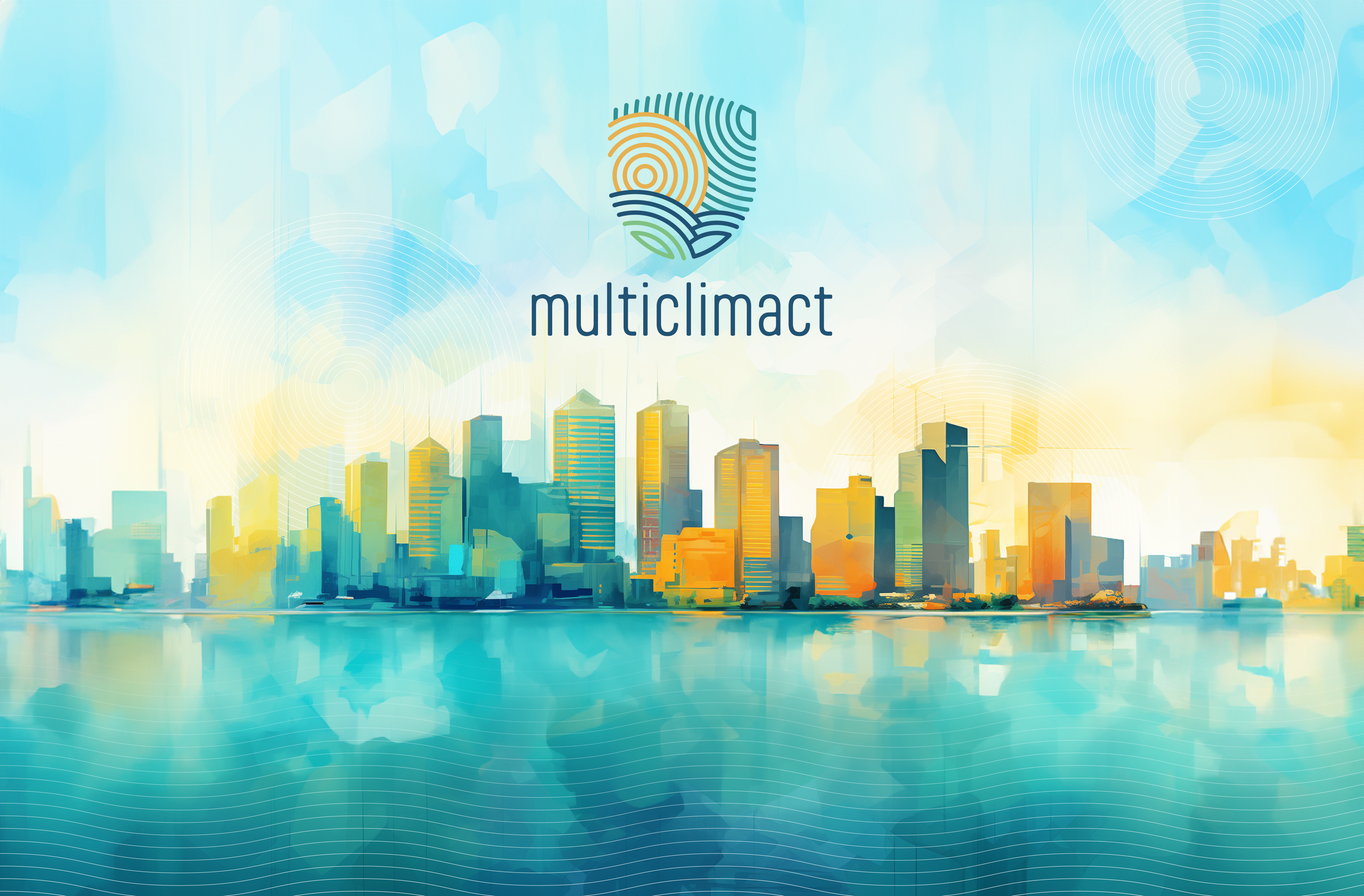MULTICLIMACT - MULTI-faceted CLIMate adaptation ACTions to improve resilience, preparedness and responsiveness of the built environment against multiple hazards at multiple scales
built environment resilience; human-centered approach; resilience-enabling materials; life cycle approach; protective digital solutions

As climatic conditions are constantly changing and the frequency of extreme events increases, there is an urgency of planning, designing and retrofitting the built environment in order adapt it to present and future risks. Too frequently the built environment is a driver of vulnerability, rather than being a shelter for citizens. For this reason, mitigation and adaptation need to be pursued actively, putting built environment and human resilience at the center of a climate and future-proofing action. The MULTICLIMACT project aims to develop a mainstreamed framework and a tool for supporting public stakeholders and citizens to assess the resilience of the built environment and its people at multiple scales (buildings, urban areas, territories) against locally relevant natural and climatic hazards and supply-chains, as well as to support them to enhance their preparedness and responsiveness across their life cycle. The mainstreamed approach will include a method specifically targeted for including several types of built environment assets, including human well-being, health, and quality of life as an essential scale of analysis and action. MULTICLIMACT will support resilience enabling ACTions by implementing a toolkit of 18 reliable, easy-to-implement and cost-effective Design methods, Materials, and Digital Solutions, enabling users to easily estimate the impact of their implementation on the resilience of the targeted asset, integrating a multidisciplinary approach integrating socio-economic, life, engineering, and climate disciplines. The MULTICLIMACT approach is integrated with relevant international and European initiatives, building upon existing knowledge and instruments, and demonstrating the proposed approach in four case studies that represent various geographical location, natural and climatic hazards, social and economic systems and scales of analysis, ranging from single buildings (including cultural heritage) to the urban and territorial scales.
Stato del progetto
In corso
Durata
42 mesi (01.10.2023 – 31.03.2027)
Responsabile scientifico
Andrea Dall’Asta
Tipologia di bando competitivo
HORIZON-IA
Gruppo di ricerca
Graziano Leoni, Alessandro Zona, Michele Morici, Emanuela Merelli, Francesca Dezi
Partner
- RINA CONSULTING SPA IT Coordinator
- AGENZIA NAZIONALE PER LE NUOVE TECNOLOGIE, L'ENERIT Partner
- UNIVERSITÀ POLITECNICA DELLE MARCHE IT Partner
- UNIVERSITÀ DEGLI STUDI DI CAMERINO IT Partner
- FONDAZIONE CENTRO EURO-MEDITERRANEOSUI CAMBIAIT Partner
- COMUNE DI CAMERINO IT Partner
- LIVE INFORMATION SYSTEM SRL IT Partner
- ICLEI EUROPEAN SECRETARIAT GMBH (ICLEI EUROPASEKR DE Partner
- UNIVERSITAETSKLINIKUM AACHEN DE Partner
- STEINBEIS INNOVATION GGMBH DE Partner
- fibrisTerre Systems GmbH DE Partner
- TECHNISCHE UNIVERSITEIT DELFT NL Partner
- FUNDACION TECNALIA RESEARCH & INNOVATION ES Partner
- COMSA SAU ES Partner
- CYPE SOFT SL Spain Partner
- BRIGAID CONNECT ES Partner
- NATURALEA CONSERVACIO, SL ES Partner
- AJUNTAMENT DE BARCELONA ES Partner
- KUNGLIGA TEKNISKA HOEGSKOLAN SE Partner
- UPONOR OYJ FI Partner
- UPONOR AB SE Affiliated
- RIGA MUNICIPAL AGENCY "RIGA ENERGY AGENCY" LV Partner
- NATIONAL CENTER FOR SCIENTIFIC RESEARCH "DEMOKRITGreece Partner
- UNIVERSIDADE DO MINHO PT Partner
- HOOGHEEMRAADSCHAP VAN DELFLAND NL Associated
- Waterschap Limburg NL Associated
Budget complessivo
€ 7.499.166,31
Finanziamento ad Unicam
€ 222.245,58
Altri progetti o proposte correlate a questa ricerca
- ARCH Advancing resilience of historic areas against climate-related and other hazards
European Commission, Horizon 2020

